Ms. Michelle: Toddler Development & the Importance of Limits and Natural Consequences (October 2023)
Developmentally Appropriate Toddler Behaviors Have you ever observed your toddler throwing their shoes when they don’t want to put them on? Running away from you when you call their name? Screaming when you put their pasta in the white bowl instead of the blue one? Wanting their blanket and then crying when you put it […]
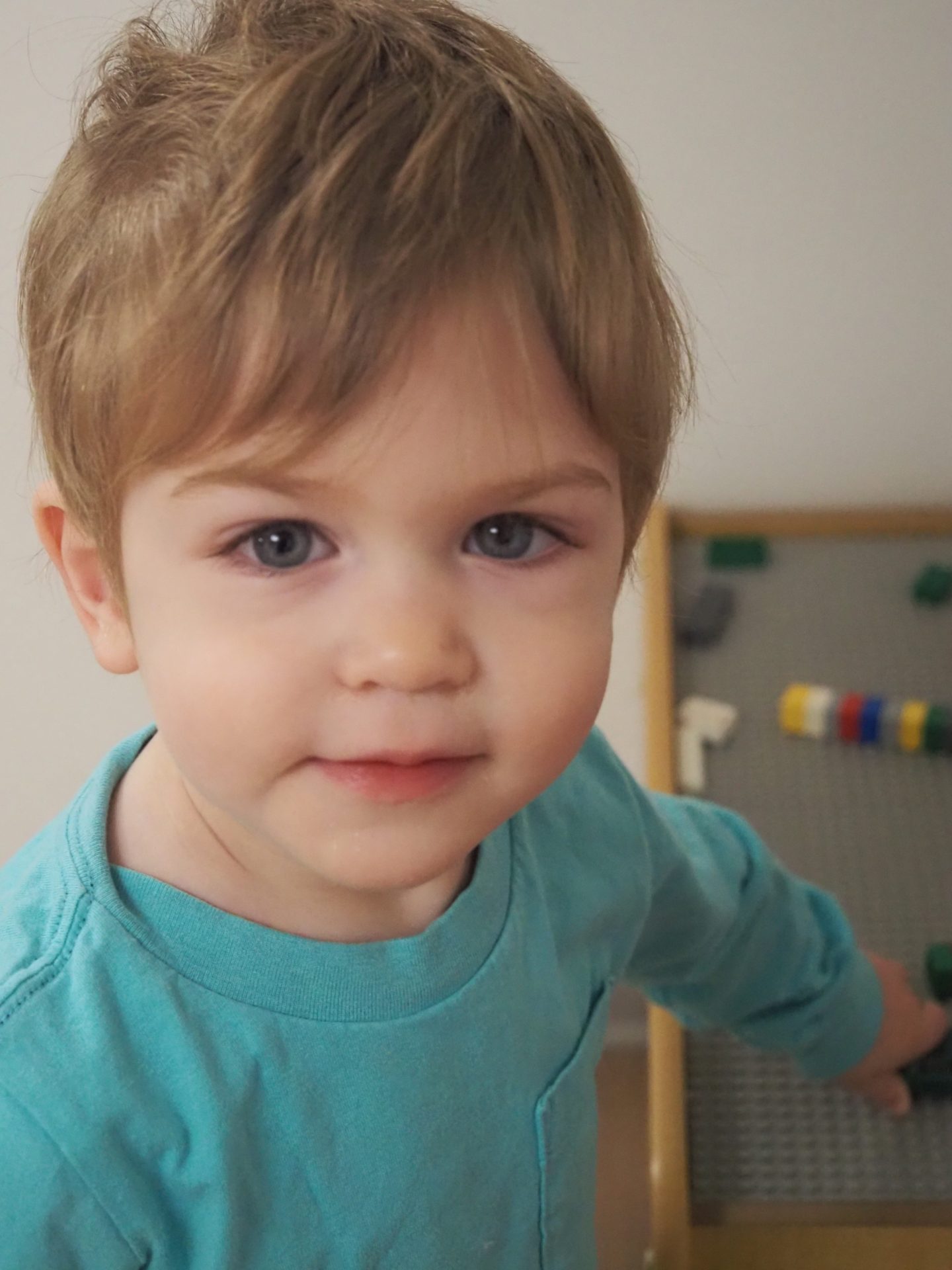
Developmentally Appropriate Toddler Behaviors
Have you ever observed your toddler throwing their shoes when they don’t want to put them on? Running away from you when you call their name? Screaming when you put their pasta in the white bowl instead of the blue one? Wanting their blanket and then crying when you put it on them? Outside of being tired, sick, or hungry, there are several possible reasons for these behaviors:
- A routine is broken
- Remember, toddlers’ reactions are based on their experiences, and when routines are disrupted, they are based on emotions. Their prefrontal cortex is not fully developed, so they cannot think logically. They often go into fight or flight mode.
- Child Development
- Developmentally, toddlers are in the stage of declaration of self-sufficiency. If they haven’t already, they will begin to declare their autonomy and independence in small ways. This stage may show itself in behaviors such as saying “No,” pushing others away, throwing objects, pouring water onto the floor, becoming sad easily, throwing tantrums, etc. This is their way of saying, “I am my own person” or “I can do it by myself!”
- Problem-Solving
- Toddlers are experiencing the world around them and gathering information through their senses. They are problem solvers trying to figure out how to be a person in society and, through trial and error, determine which behaviors are socially acceptable or how to achieve their goals.
Considerations for Creating Limits & Redirection
Principles for creating limits:
- Developmentally appropriate
- Can your child do what the action is? For instance, if they must clean up their toys and there are 50 Lego blocks, that is too many for them. To be honest, that’s too many for me! Take a look at the toys at home; if you are overwhelmed, then so are they. Try minimizing the amount of toys they have access to, and then, in a few weeks, change them.
- Easy to understand
- If you make a rule that your child cannot understand, how can they follow it?
- Use short and simple language.
- Talking too much can distract your child, and they might lose focus on what they should do.
Natural Consequences
If you say it, mean it. If you mean it, do it.
Natural consequences help children to understand that certain behaviors are not acceptable: all feelings are acceptable, but not all behaviors are. There are organic consequences in life that teach us lessons: if you go outside in the rain without an umbrella and jacket, you will get wet, or if you touch a cast iron skillet without an oven mitt while cooking, you will burn your hand. As caregivers of toddlers, we must provide natural consequences in order to help them understand that certain behaviors are not okay. If we enforce a limit verbally, “Your glass is for drinking your water. If you throw a glass, I will say you are finished with it, and you may try drinking water later.” If you say this to a toddler and do not remove the glass once thrown again, they learn that they can throw a glass when they want; furthermore, they may lose trust in your words.
Sometimes, a toddler’s goal may be to eat a cookie before dinner, and the reaction to hearing a version of “No” sets off the sirens and tears. If their screaming or crying gets them that cookie, those little scientists have learned through cause and effect: “If I want a cookie, I must scream and cry to get it.” This is why when you set a limit, you must follow through! It may be painful the first 11 times, but perhaps that 12th time it clicked, “When she says it’s not time for a cookie, then it is not the time for a cookie.”
Consistency and teamwork from adults are also important. If one parent makes a limit, but the other does not follow through, your child will be confused due to mixed messages. Make time with your partner to develop rules and boundaries for your home.
In their Survival Guide for Parents, ZerotoThree.org states:
Set appropriate limits with natural consequences: Even though your child may not be able to follow a rule yet, it is still important to set expectations. The key is to take a teaching and guiding approach with clear and natural consequences. Stay calm and explain the rule (“No throwing toys. If you throw the truck, I will have to put it away for 5 minutes”). If your child tests the limit, which is to be expected, calmly implement the consequence. Through everyday interactions like these, children develop the brain connections they need to master the skill of self-control.Developing Self-Control From 24-36 Months is an additional short article from ZerotoThree.org worth reading.
Ms. Michelle’s Guide to Creating and Enforcing Appropriate Limits and Boundaries
In September’s Blog, I shared a folder of guides I created for you. I wanted to highlight this one again that discusses this month’s topic. This guide will walk you through three potential scenarios and give step-by-step directions on enforcing limits with natural consequences.
Book Recommendations for Adults
- Positive Discipline: The First Three Years: From Infant to Toddler–Laying the Foundation for Raising a Capable, Confident Child by Jane Nelsen
- The Whole-Brain Child: 12 Revolutionary Strategies to Nurture Your Child’s Developing Mind by Daniel J. Siegel
- 1,2,3, Magic by Thomas Phelan
Goodbye, October
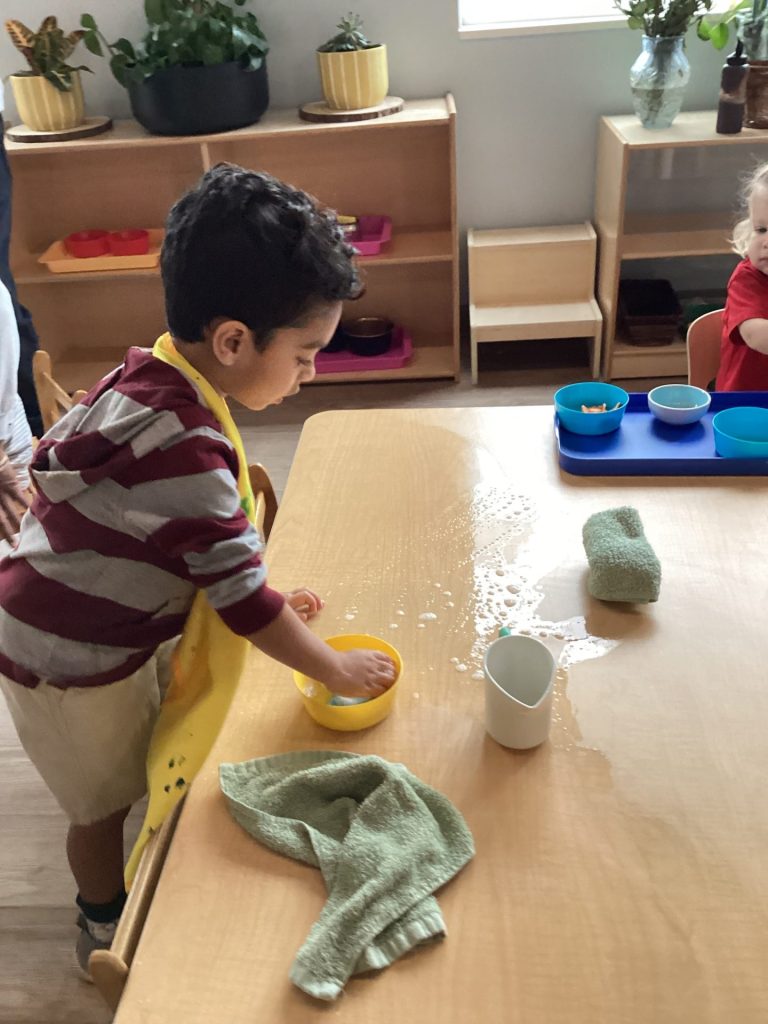
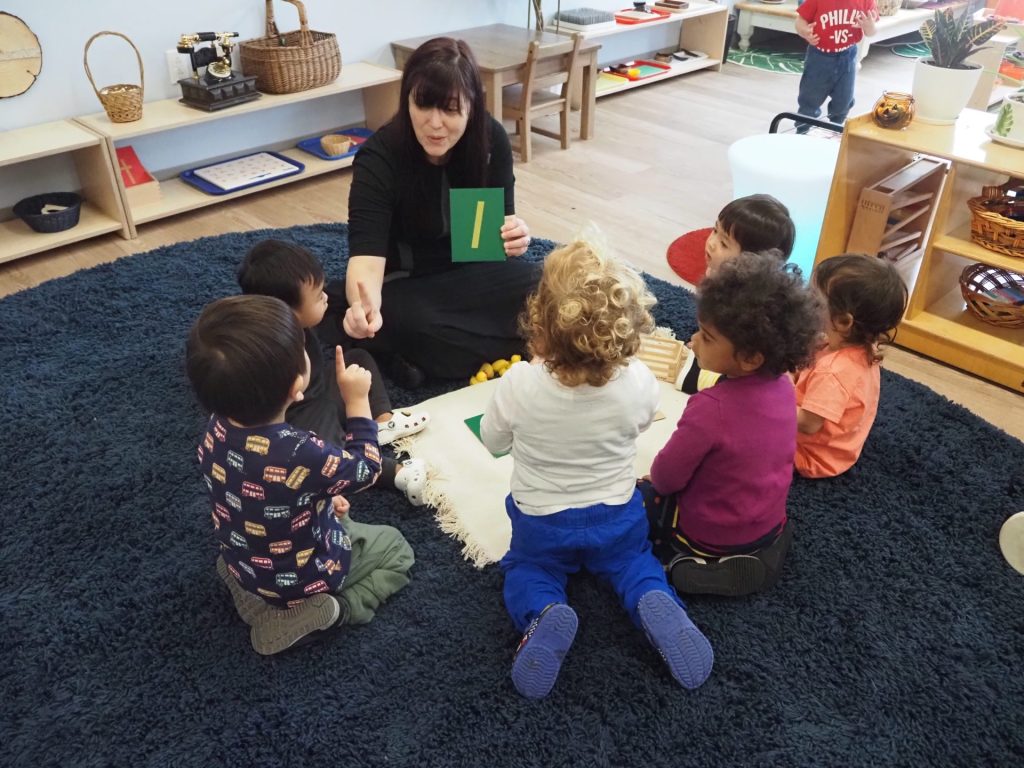
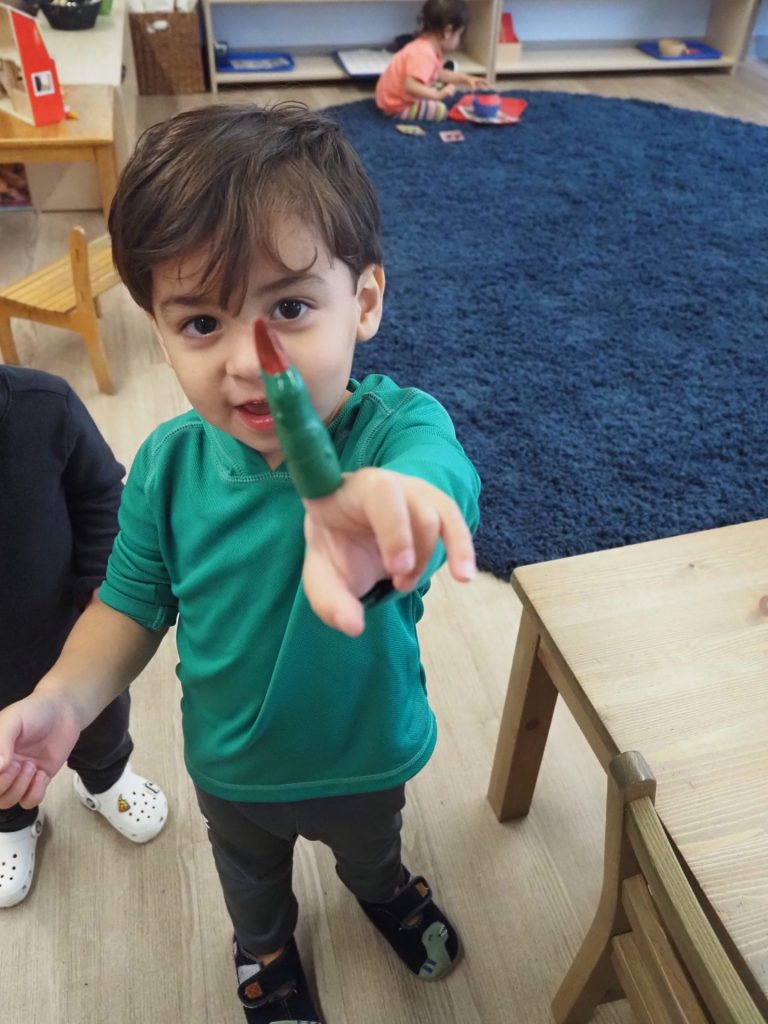
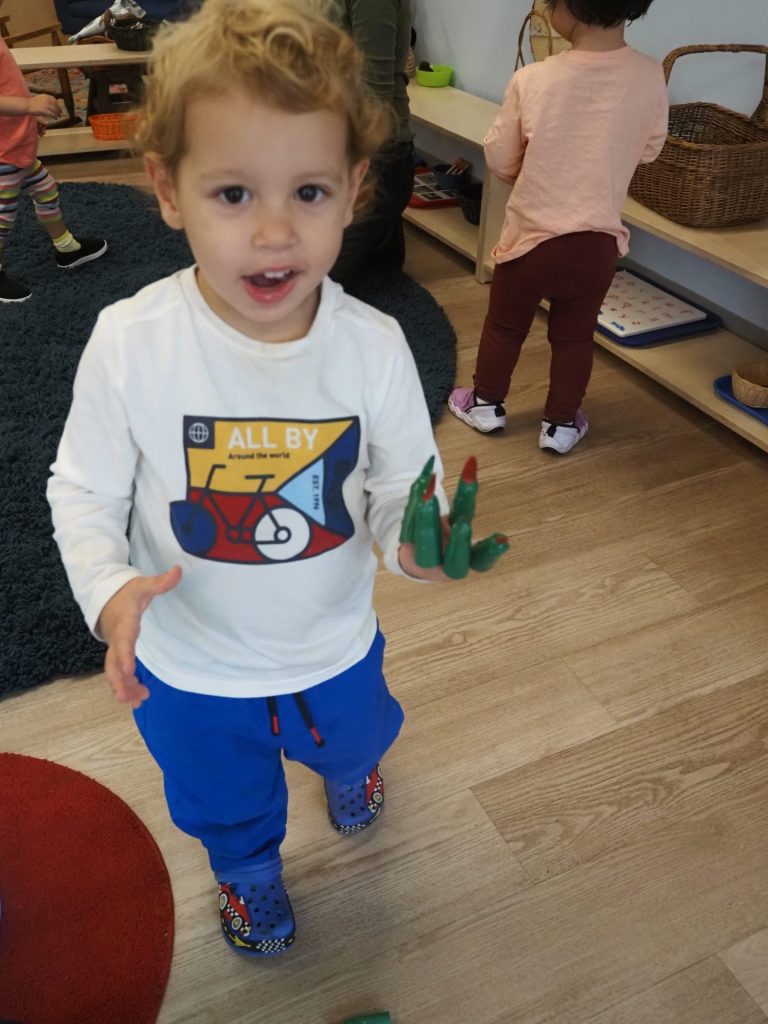
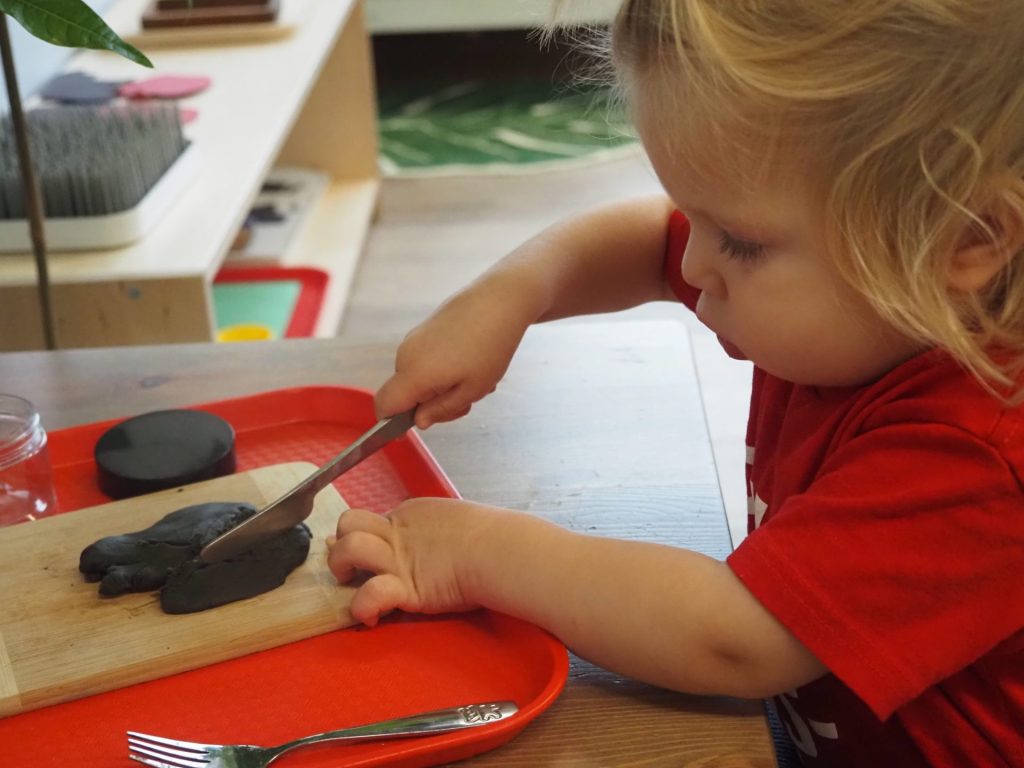
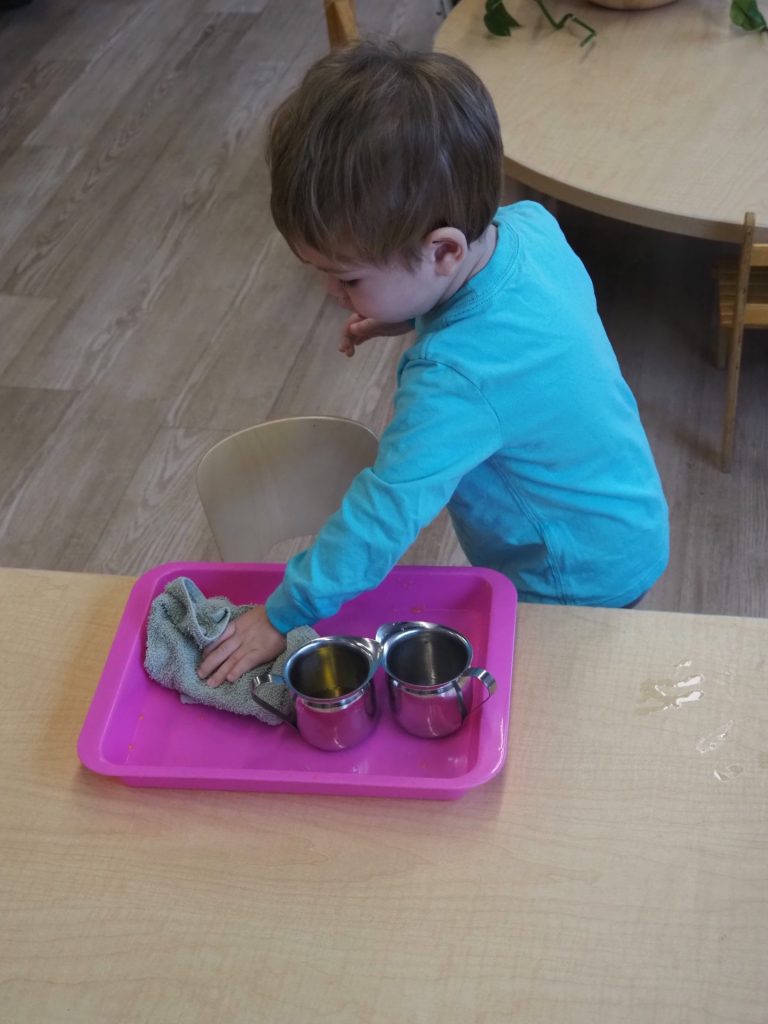
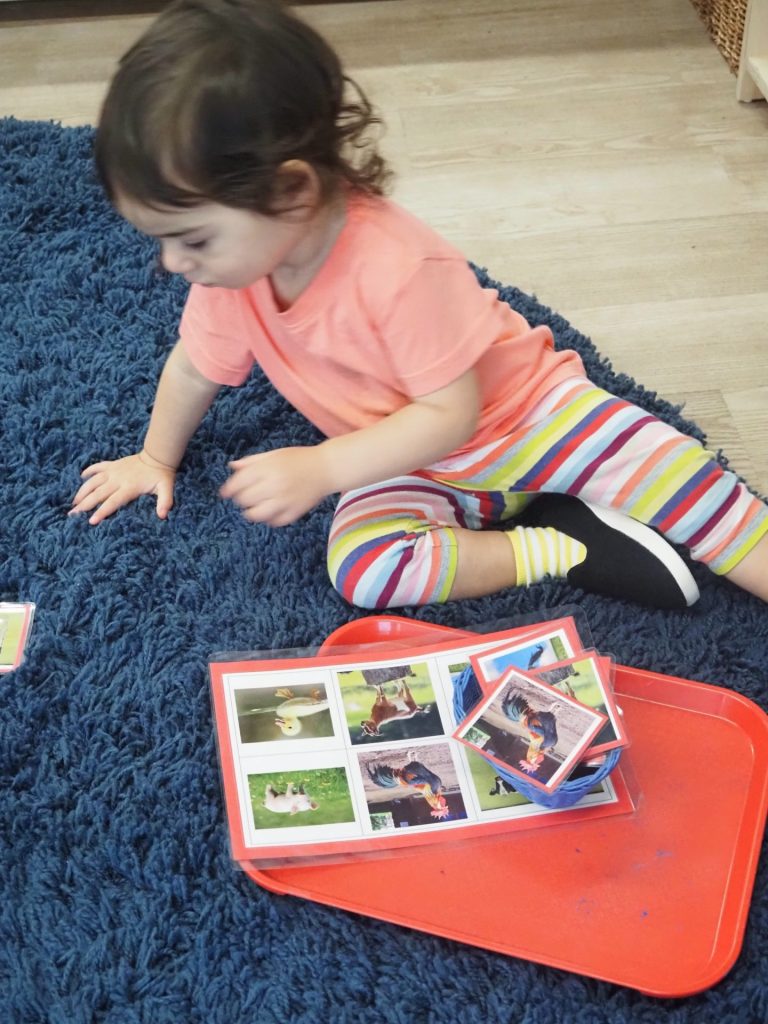
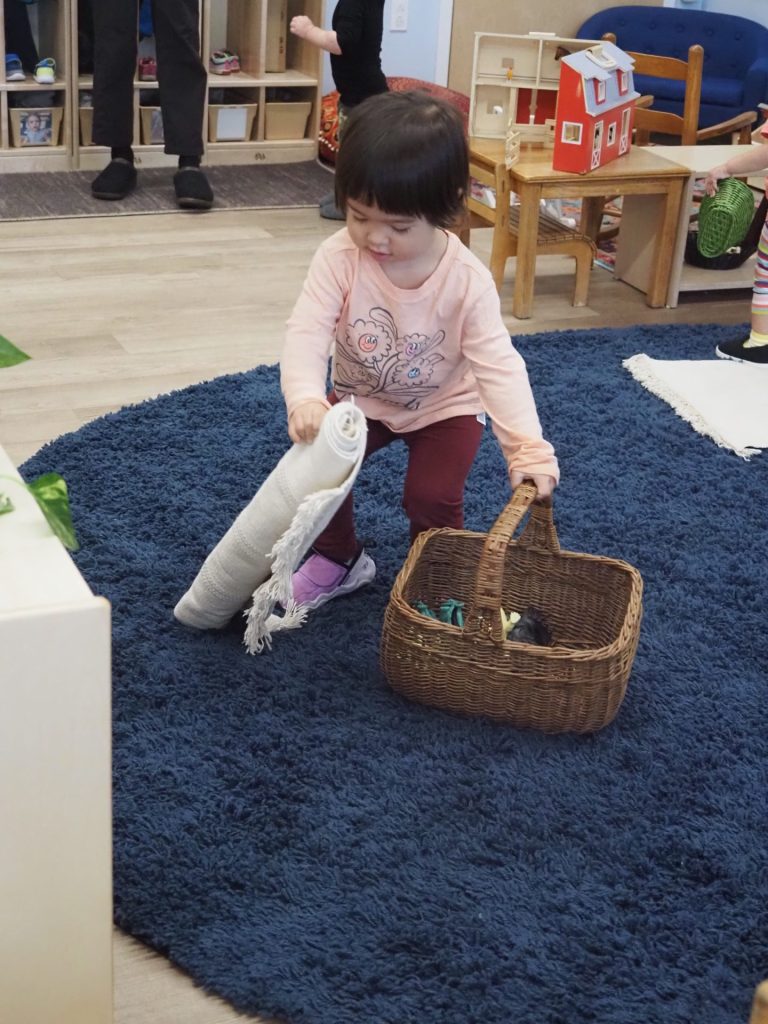
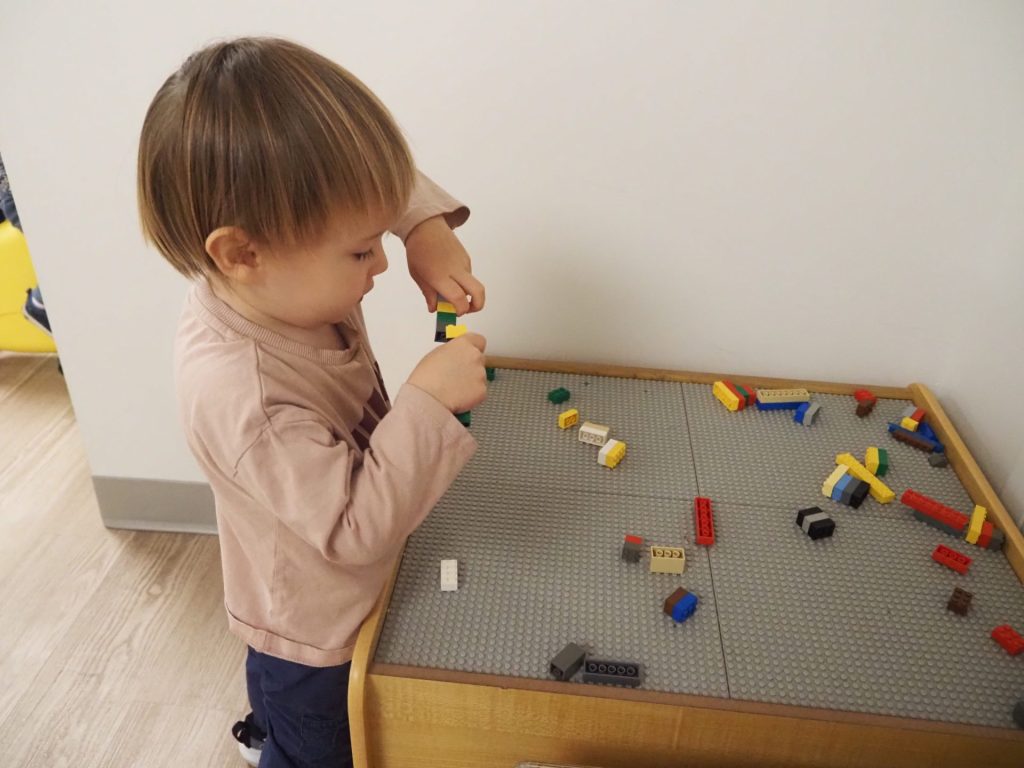
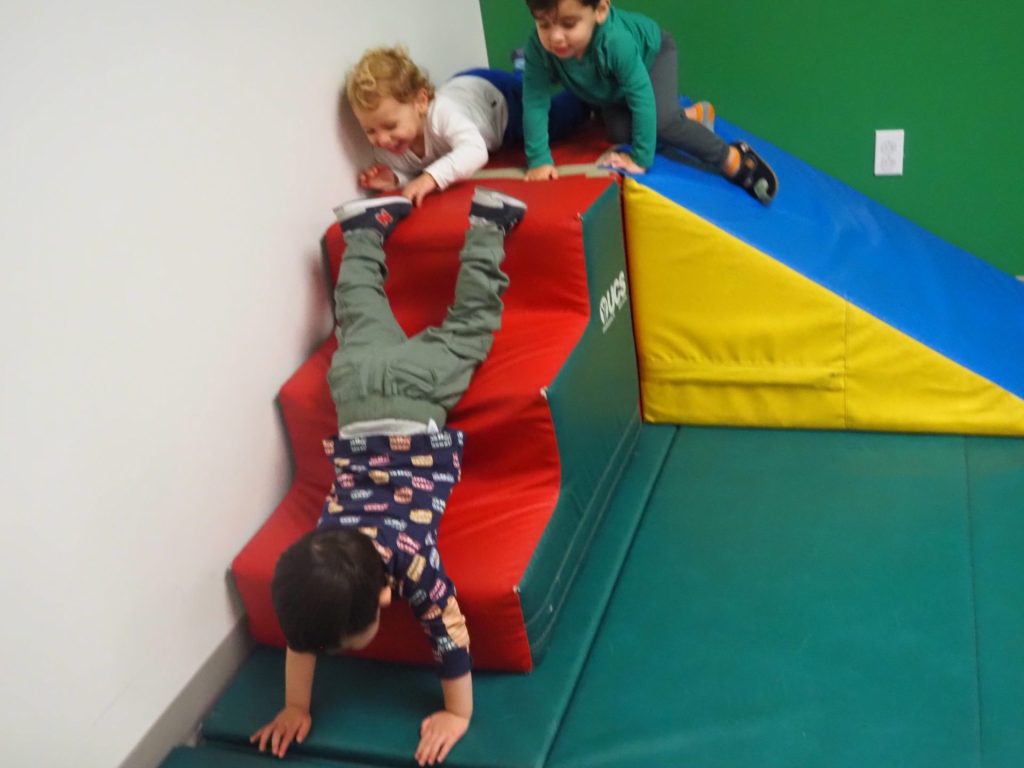
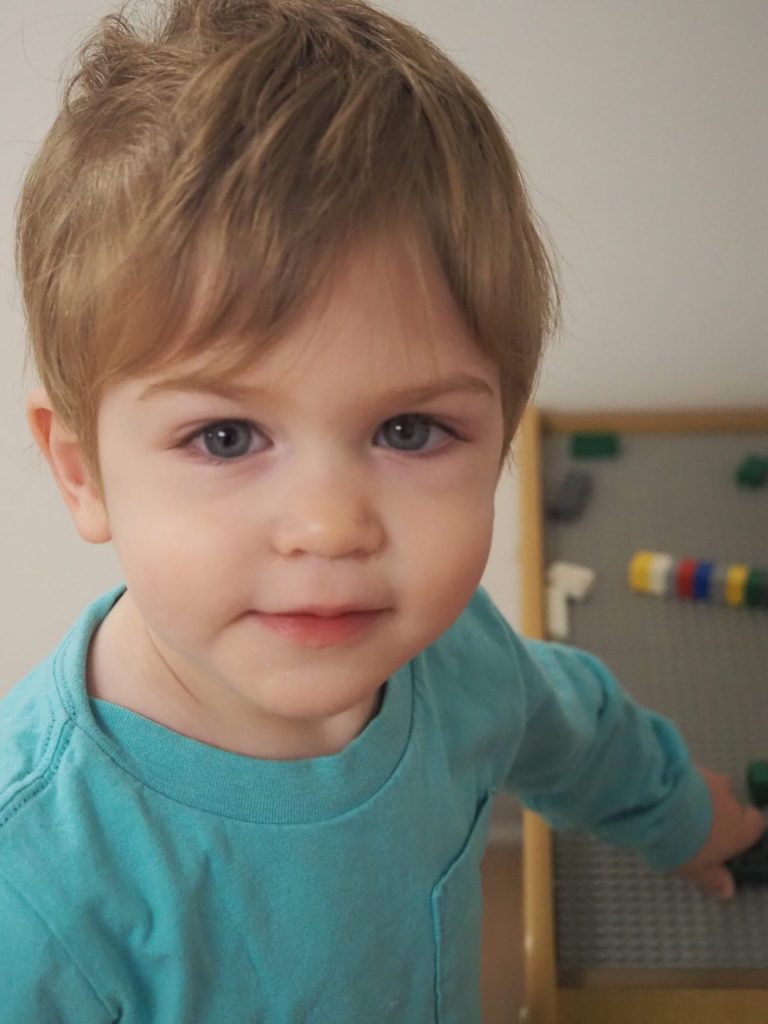
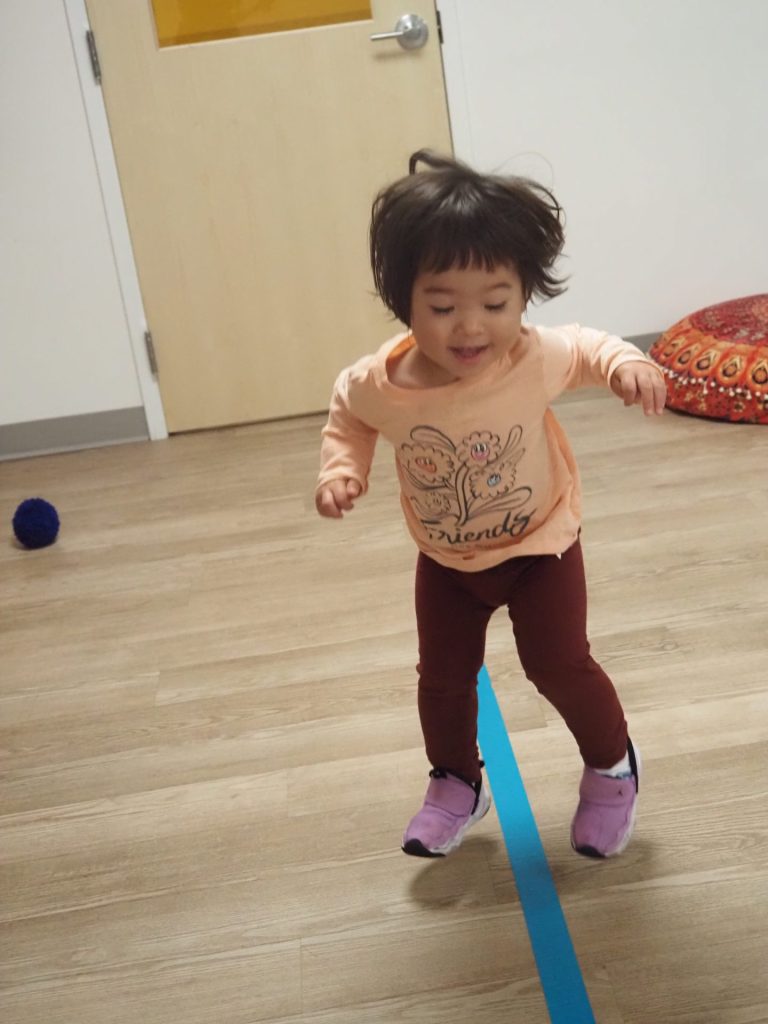
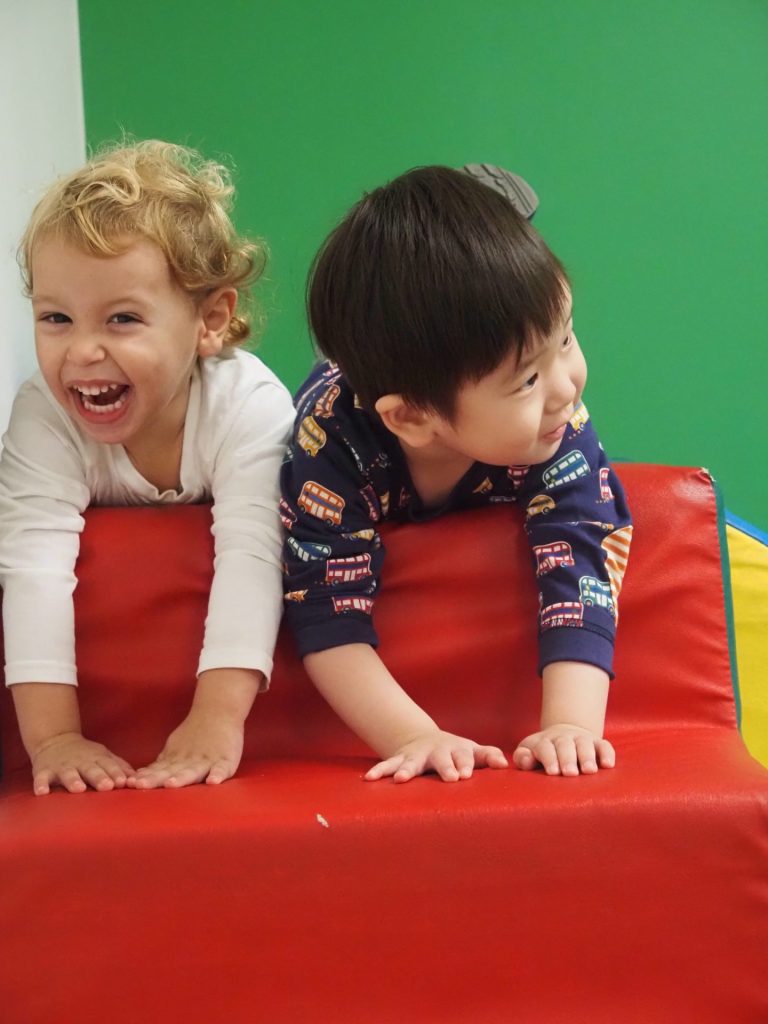


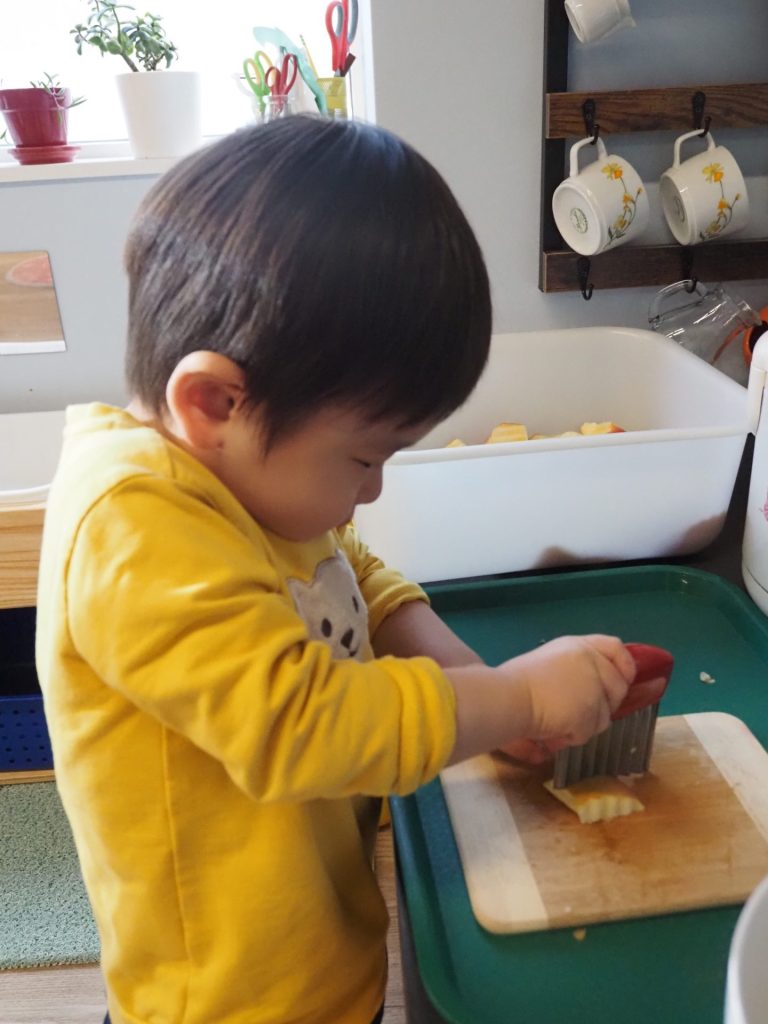
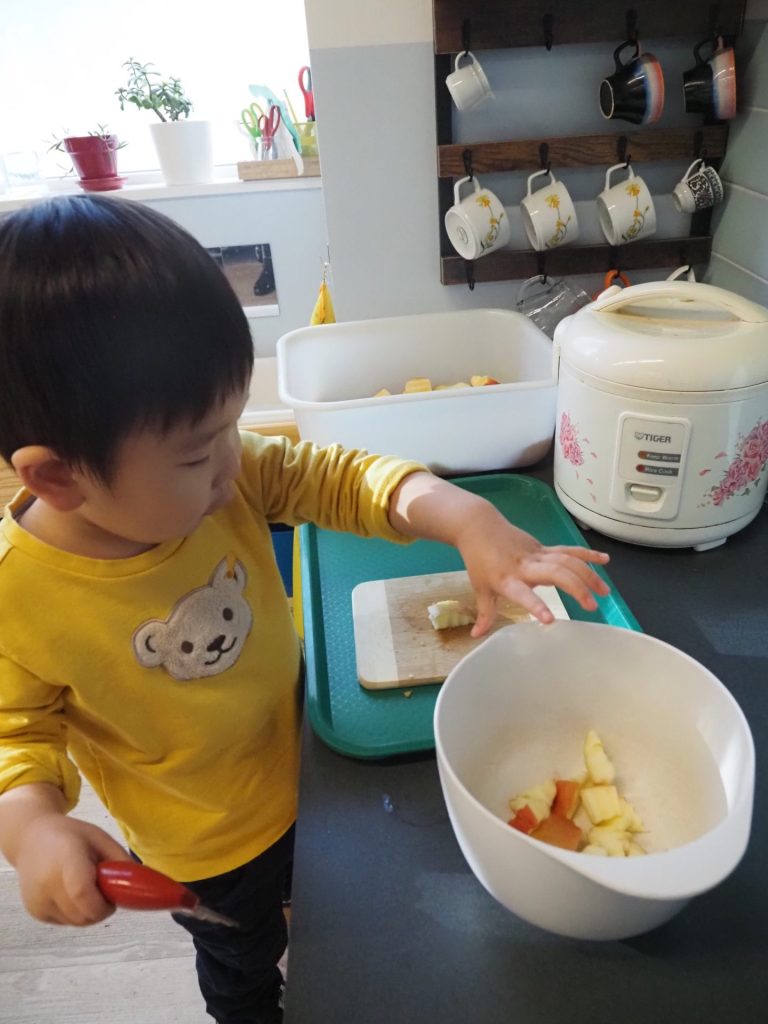
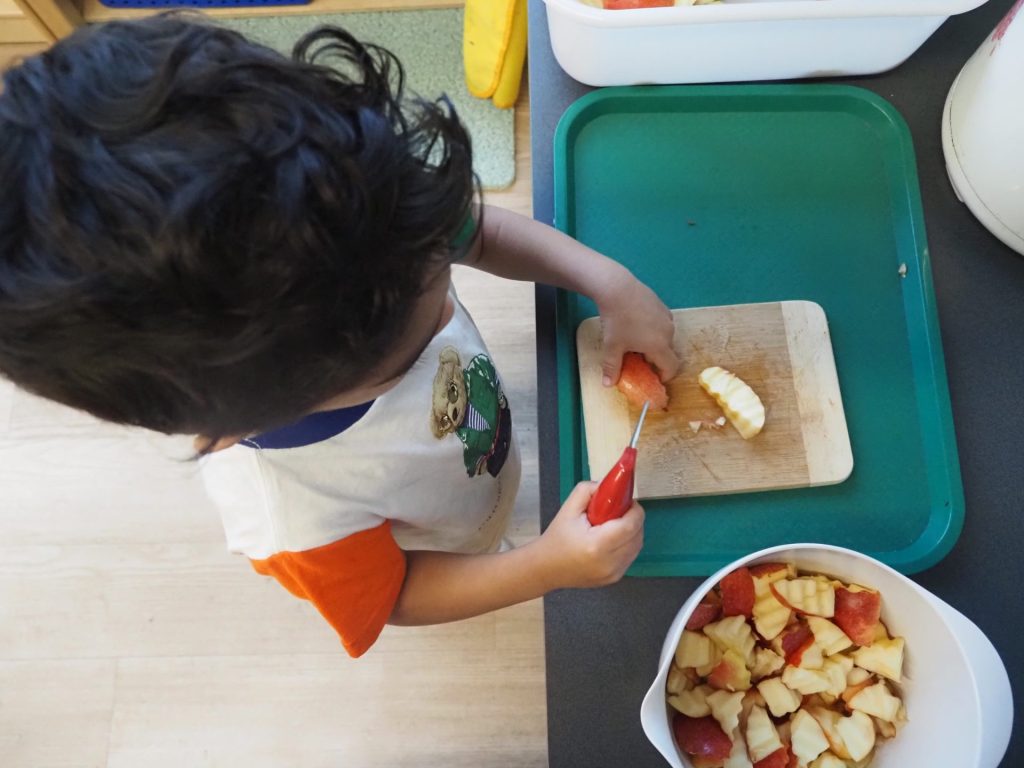
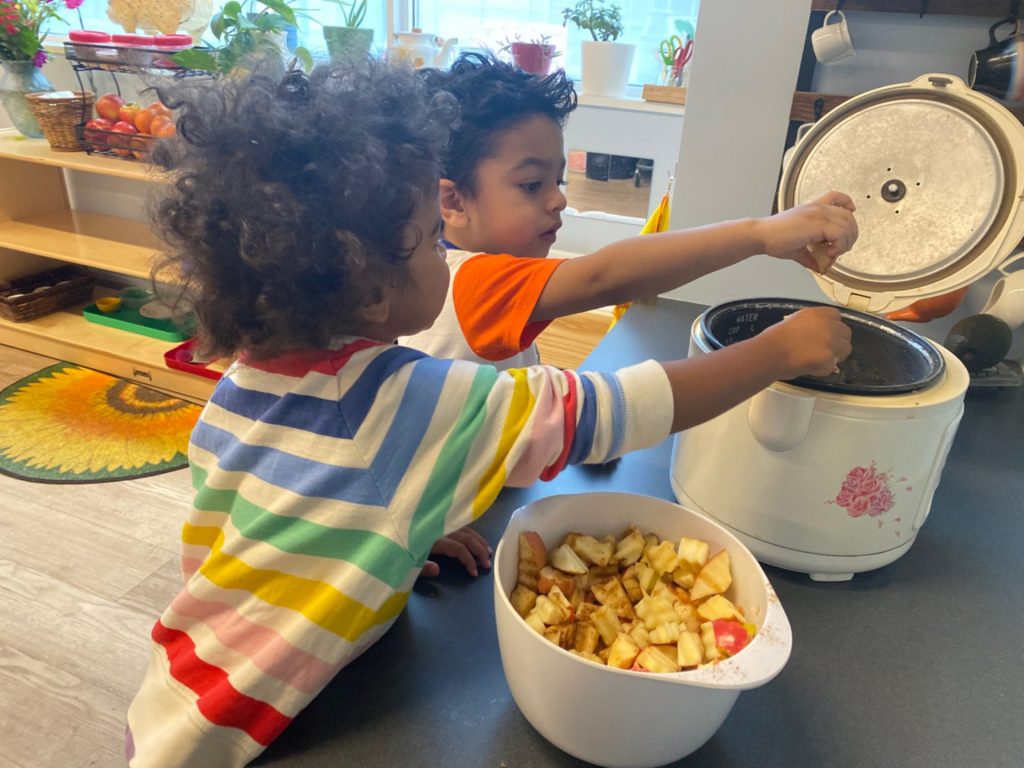
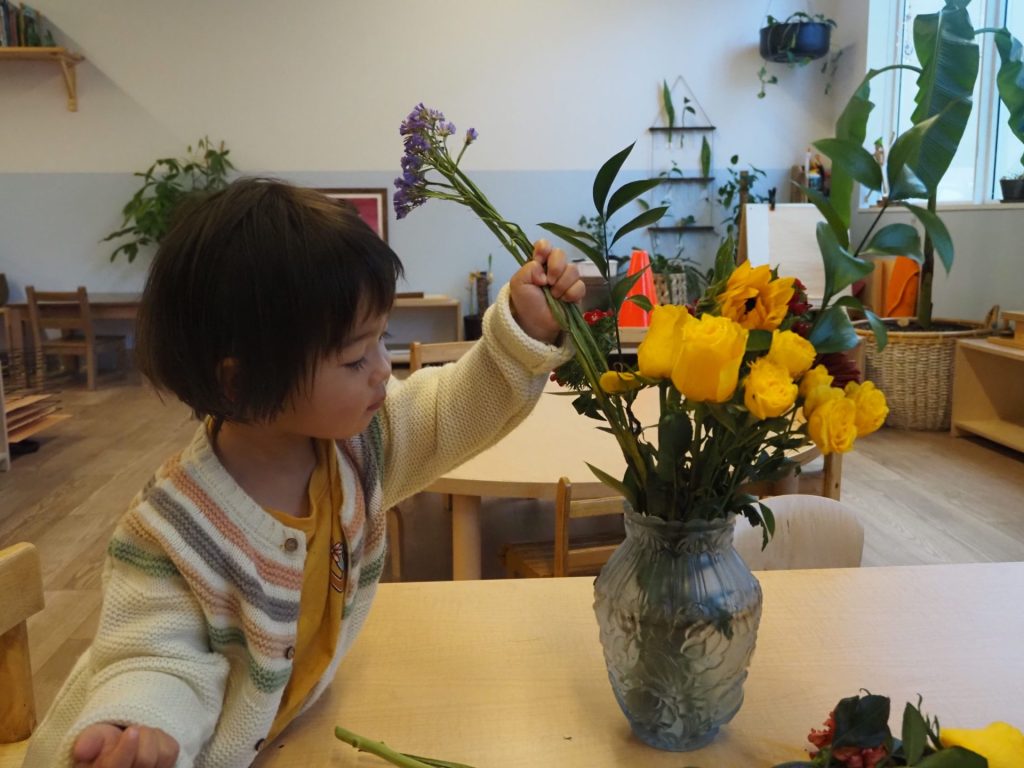
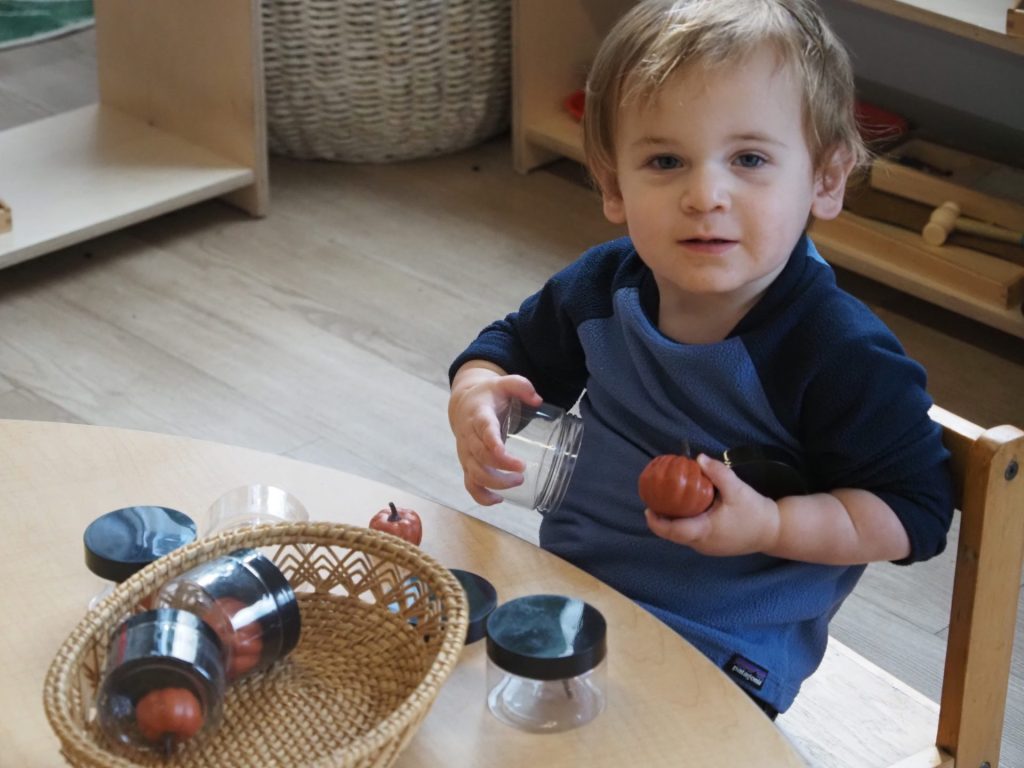
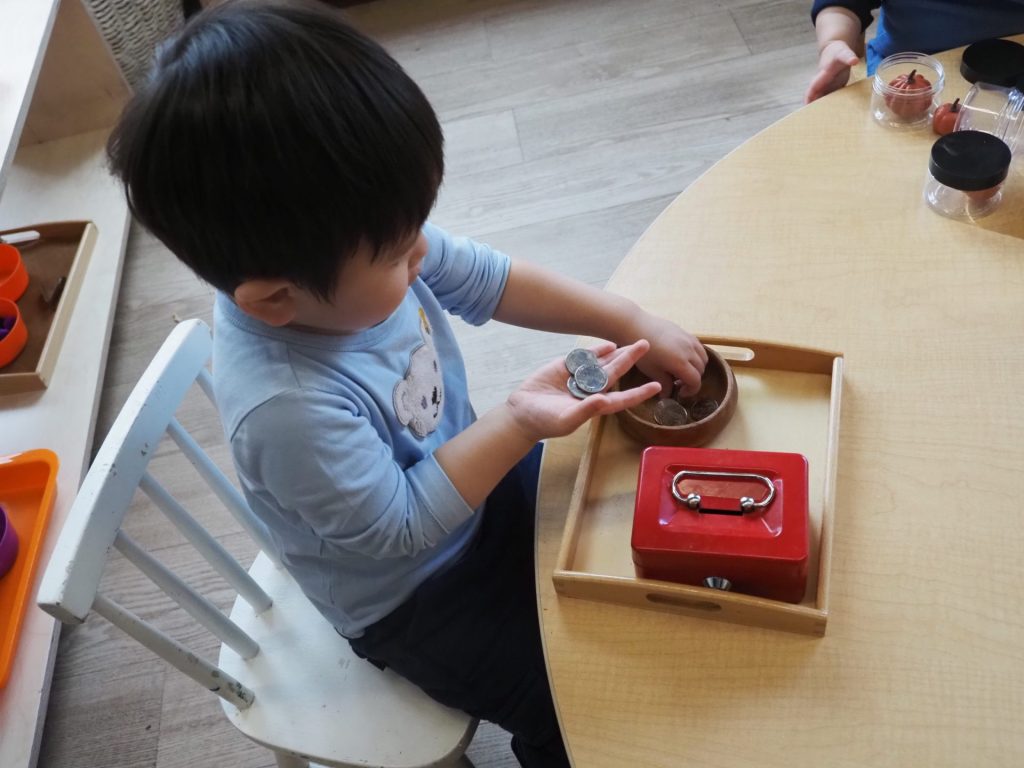

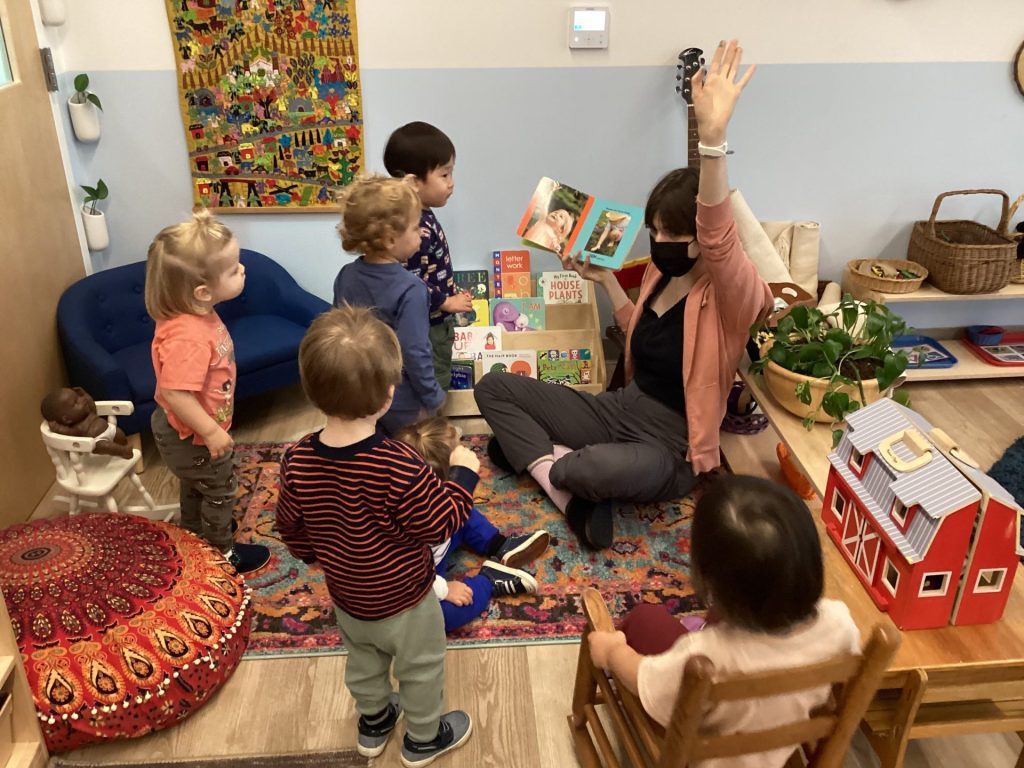
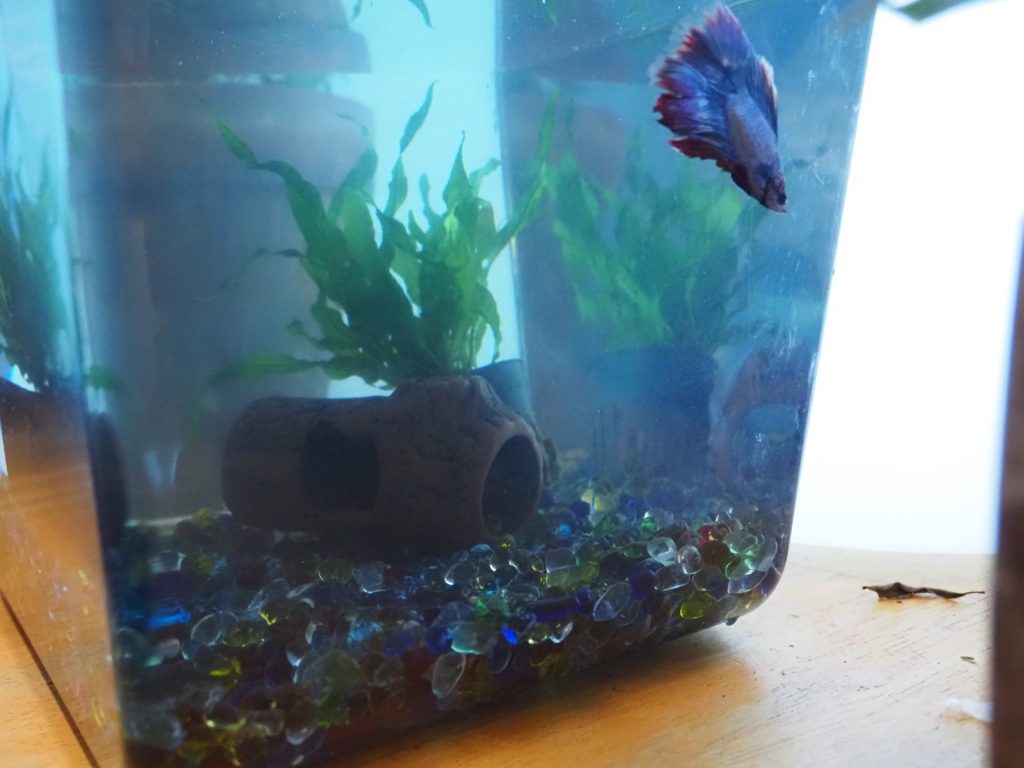
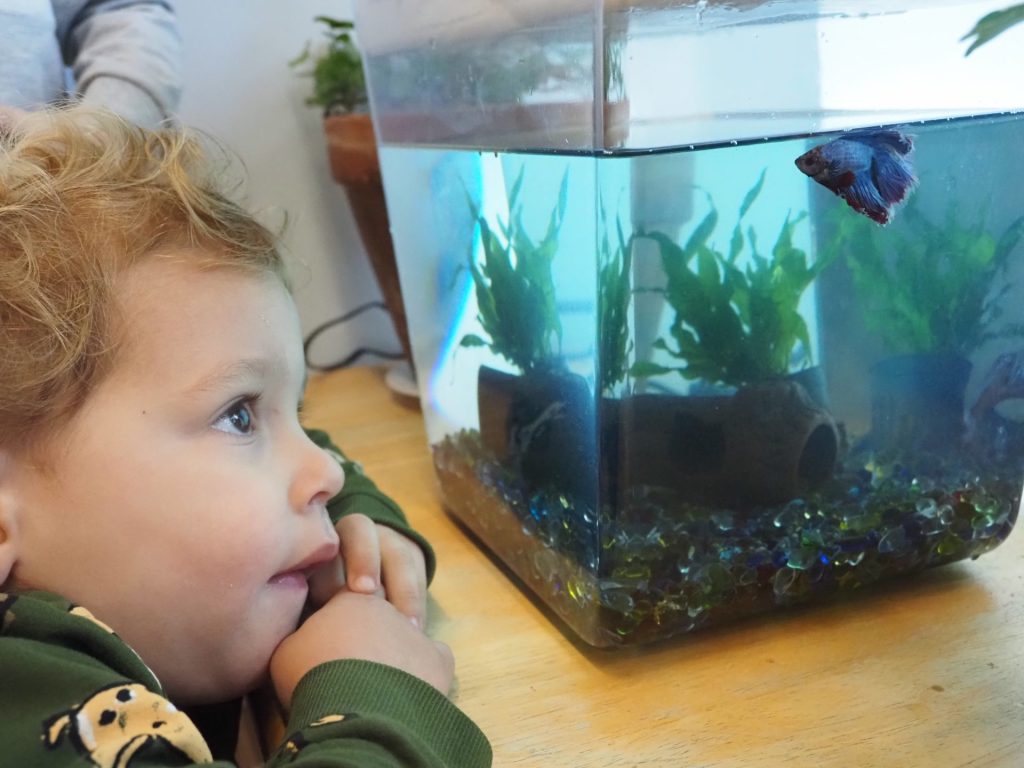
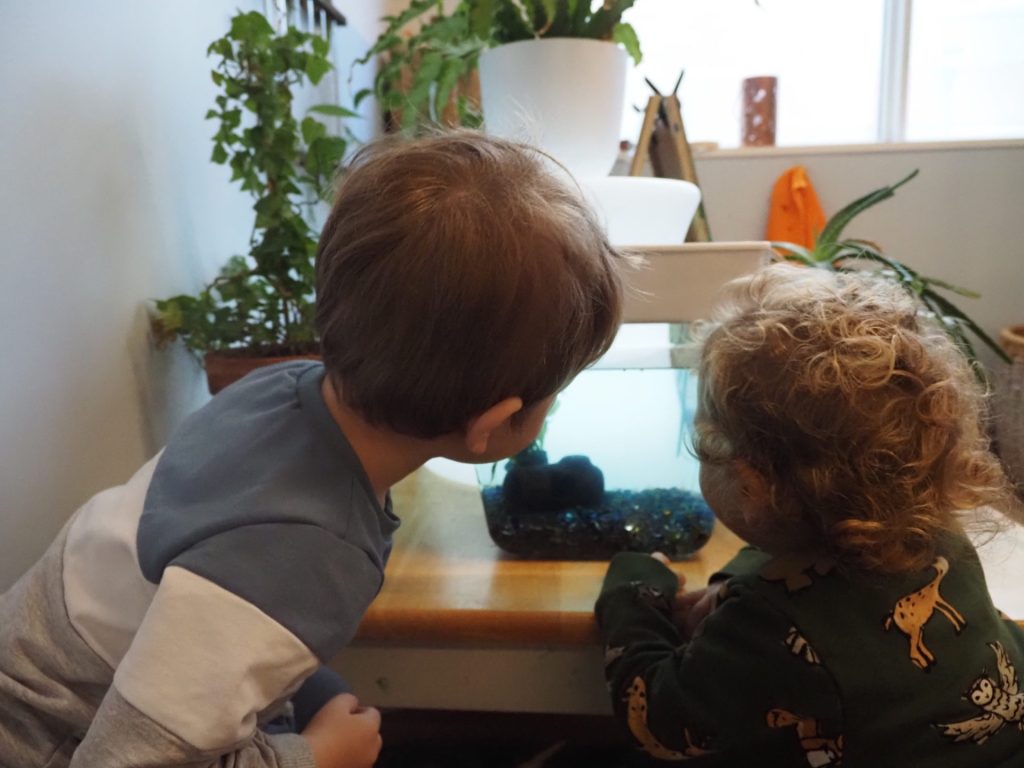
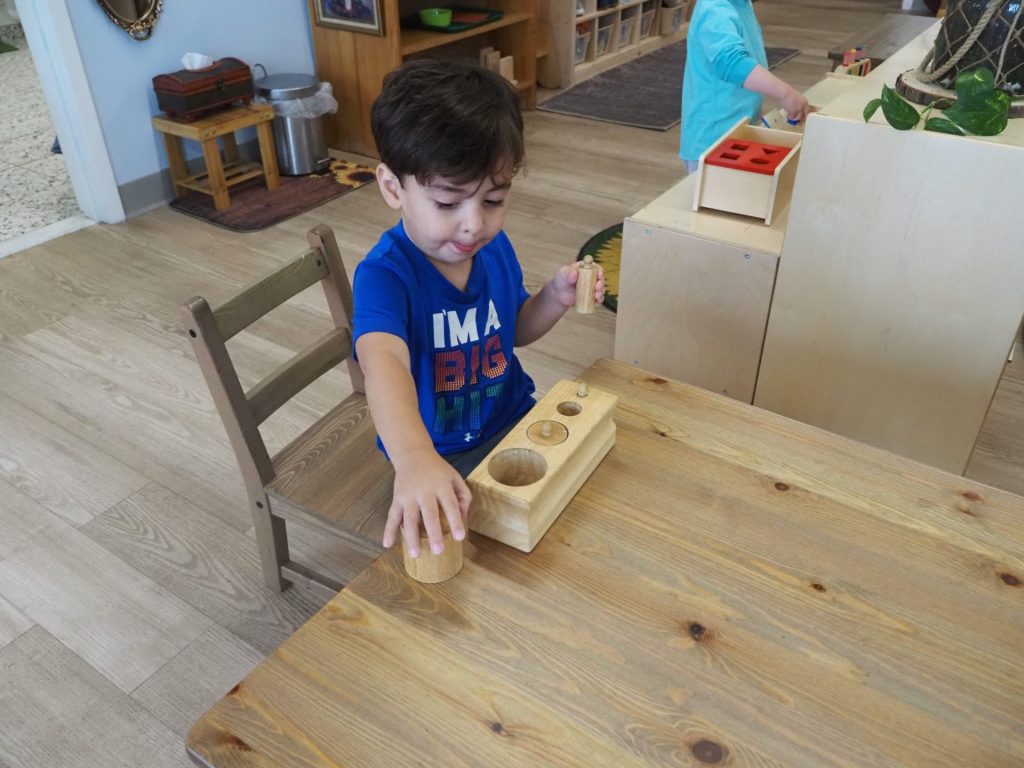
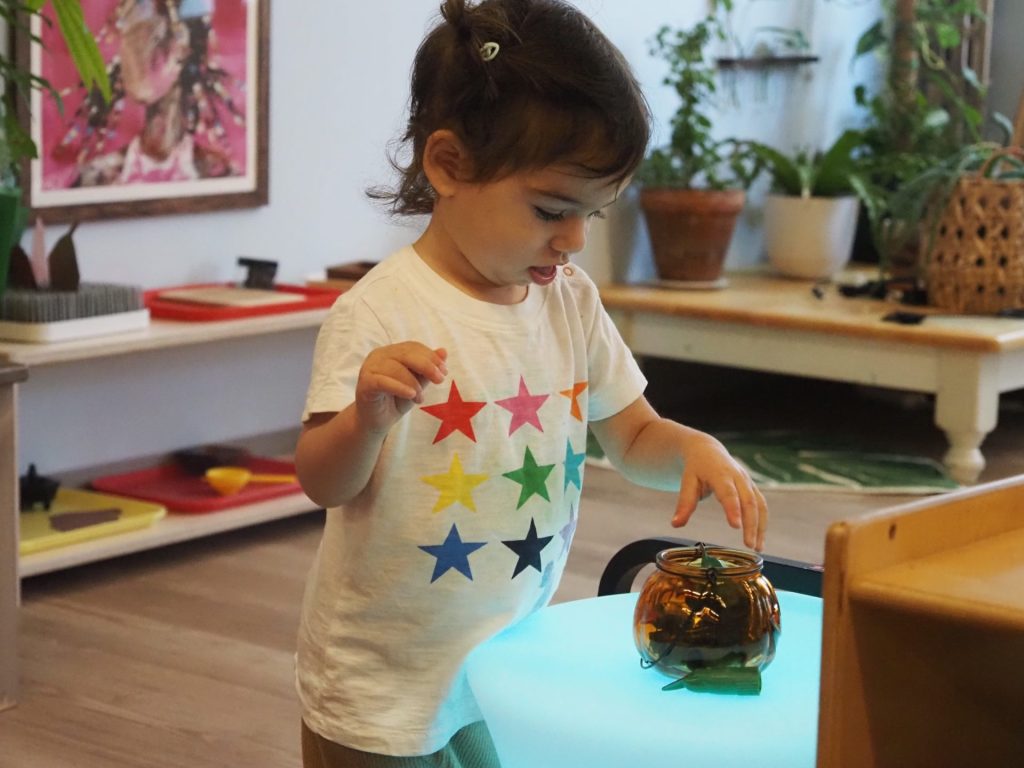


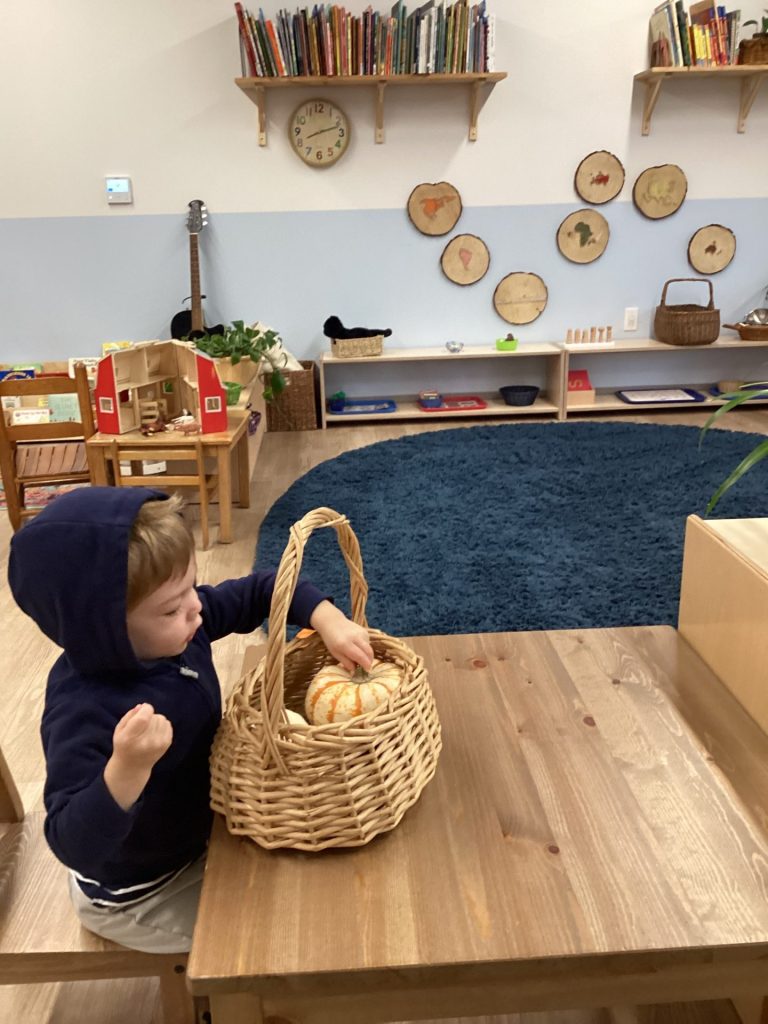
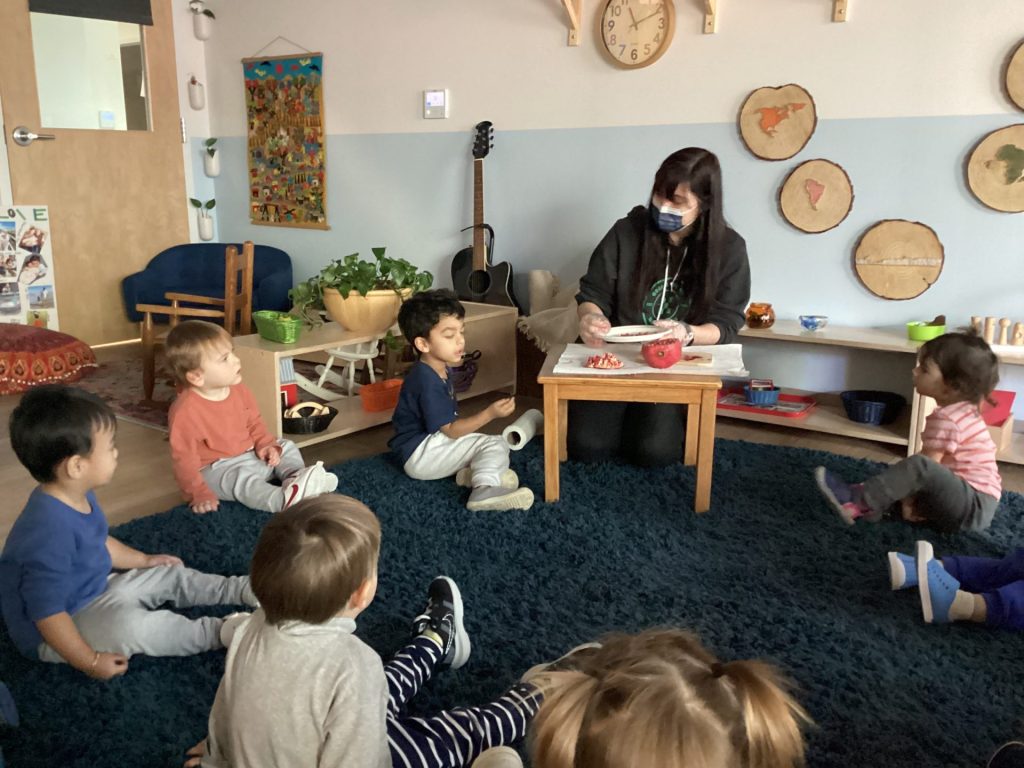
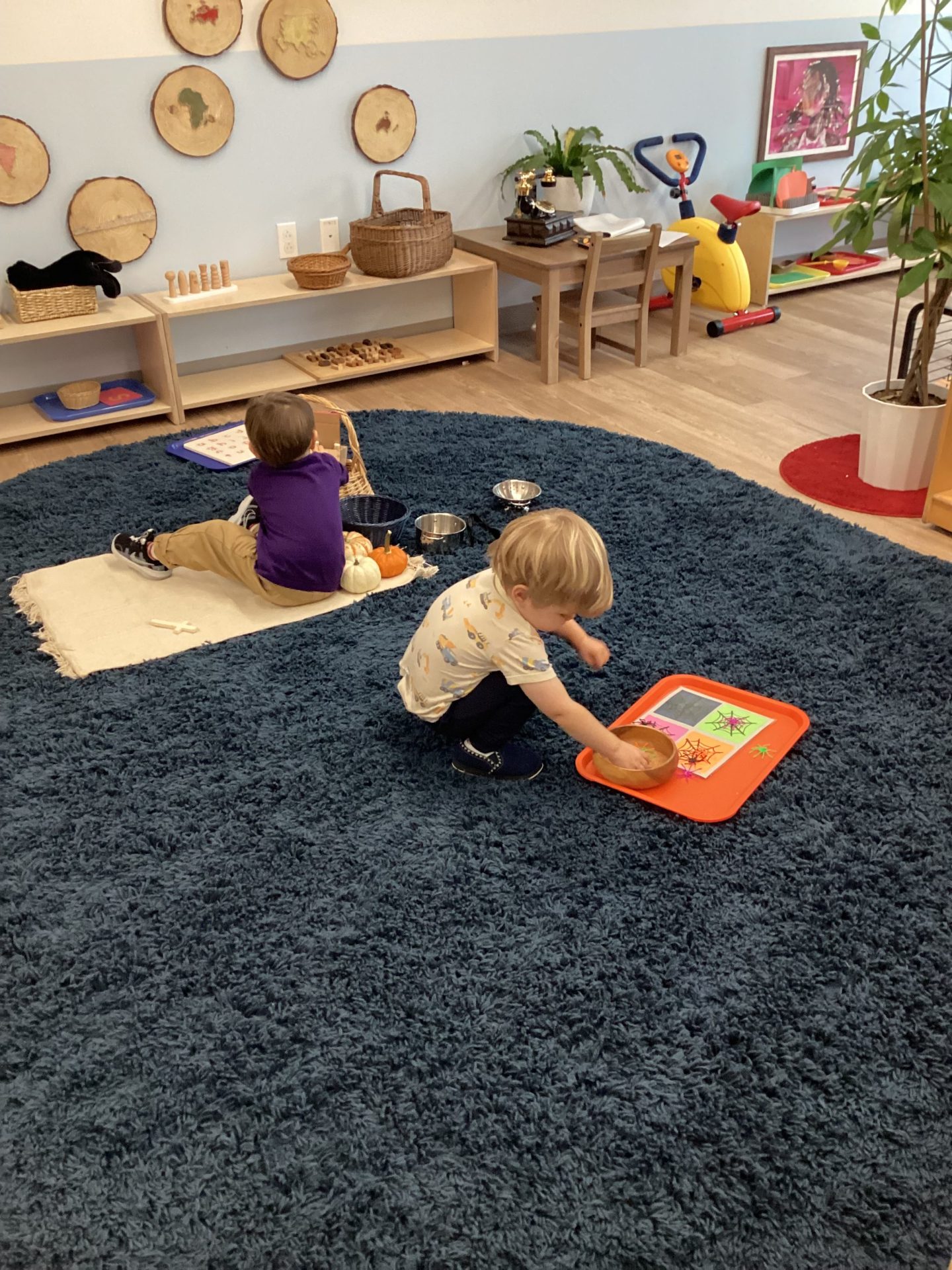
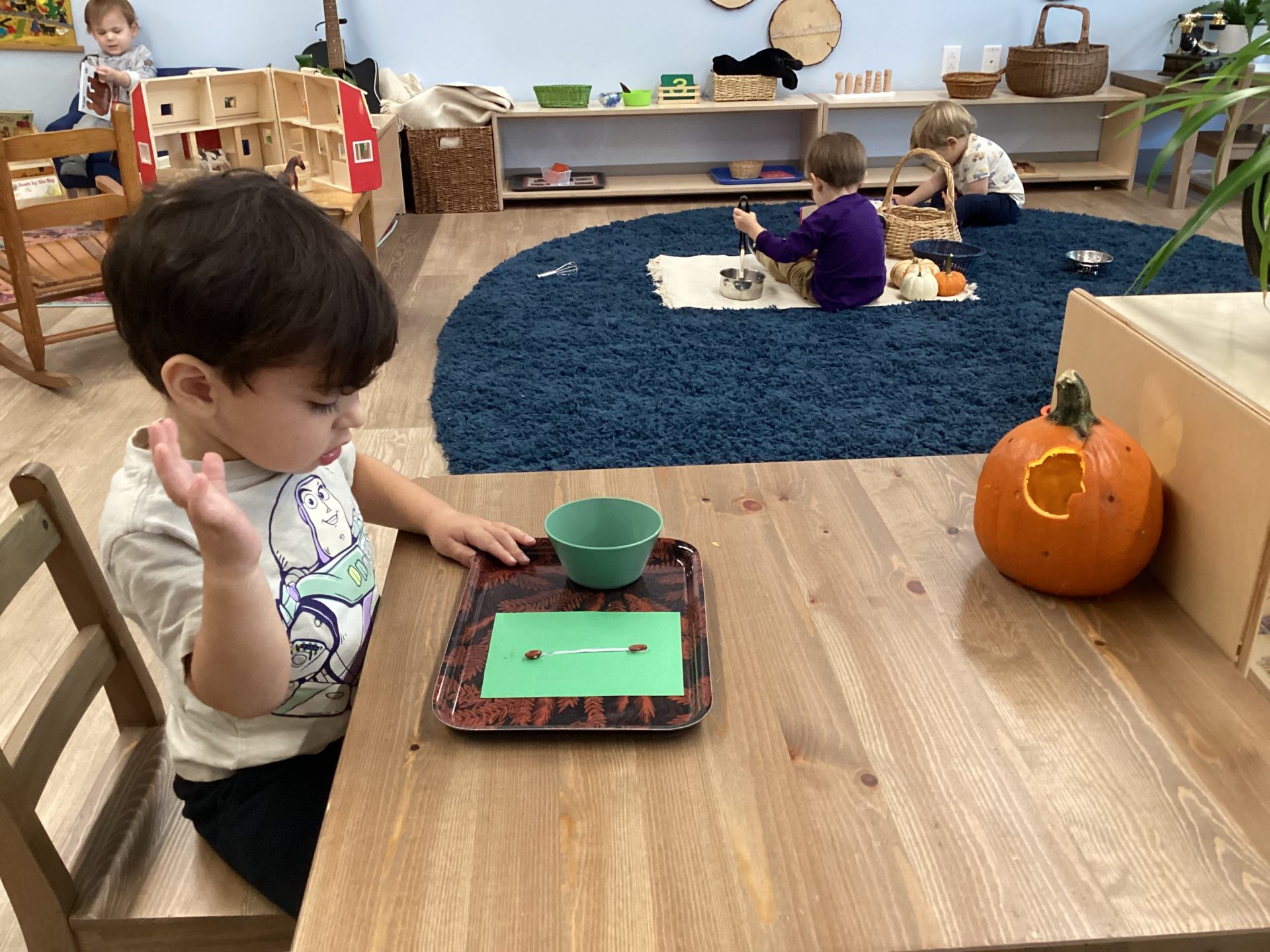
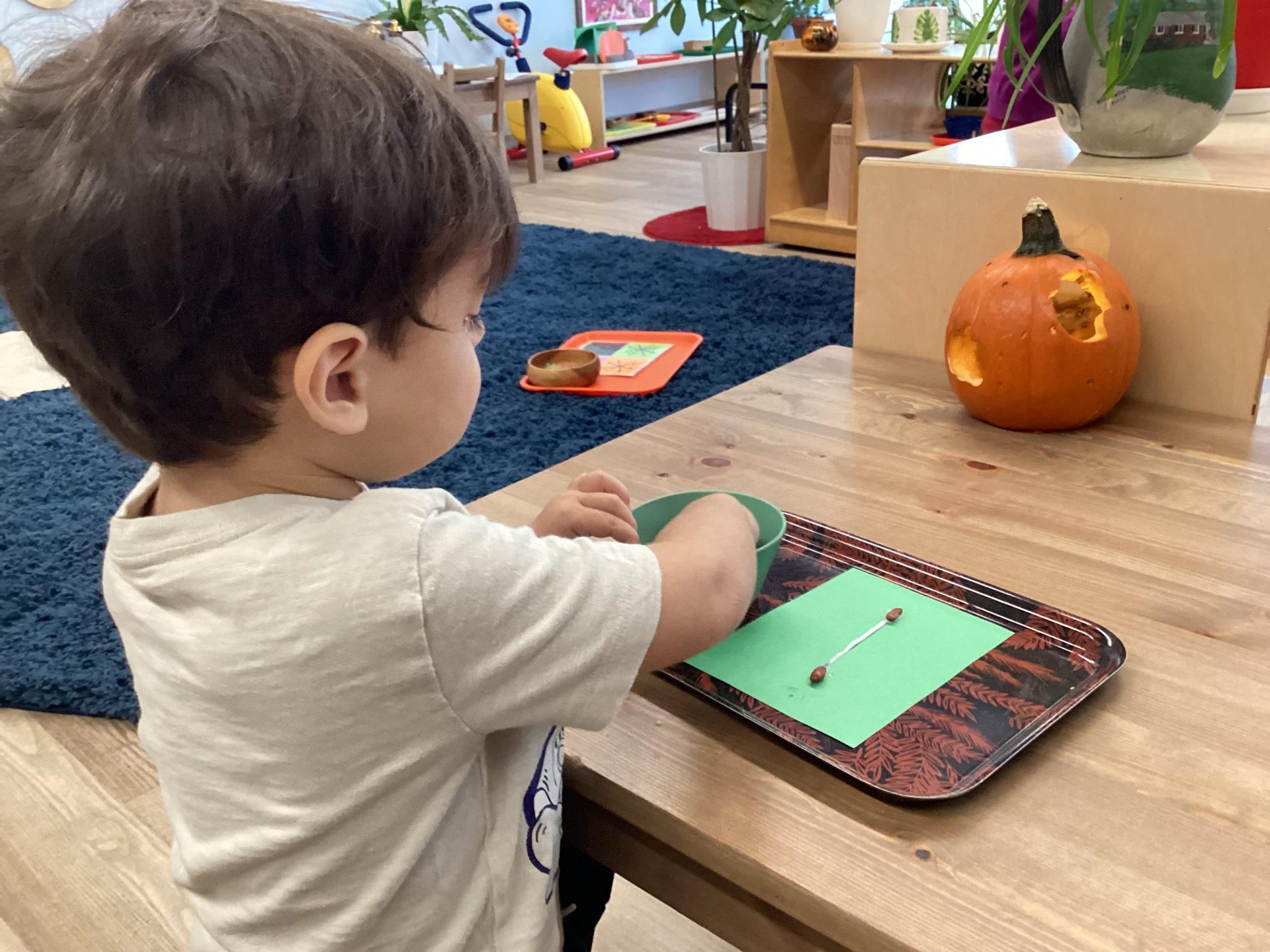
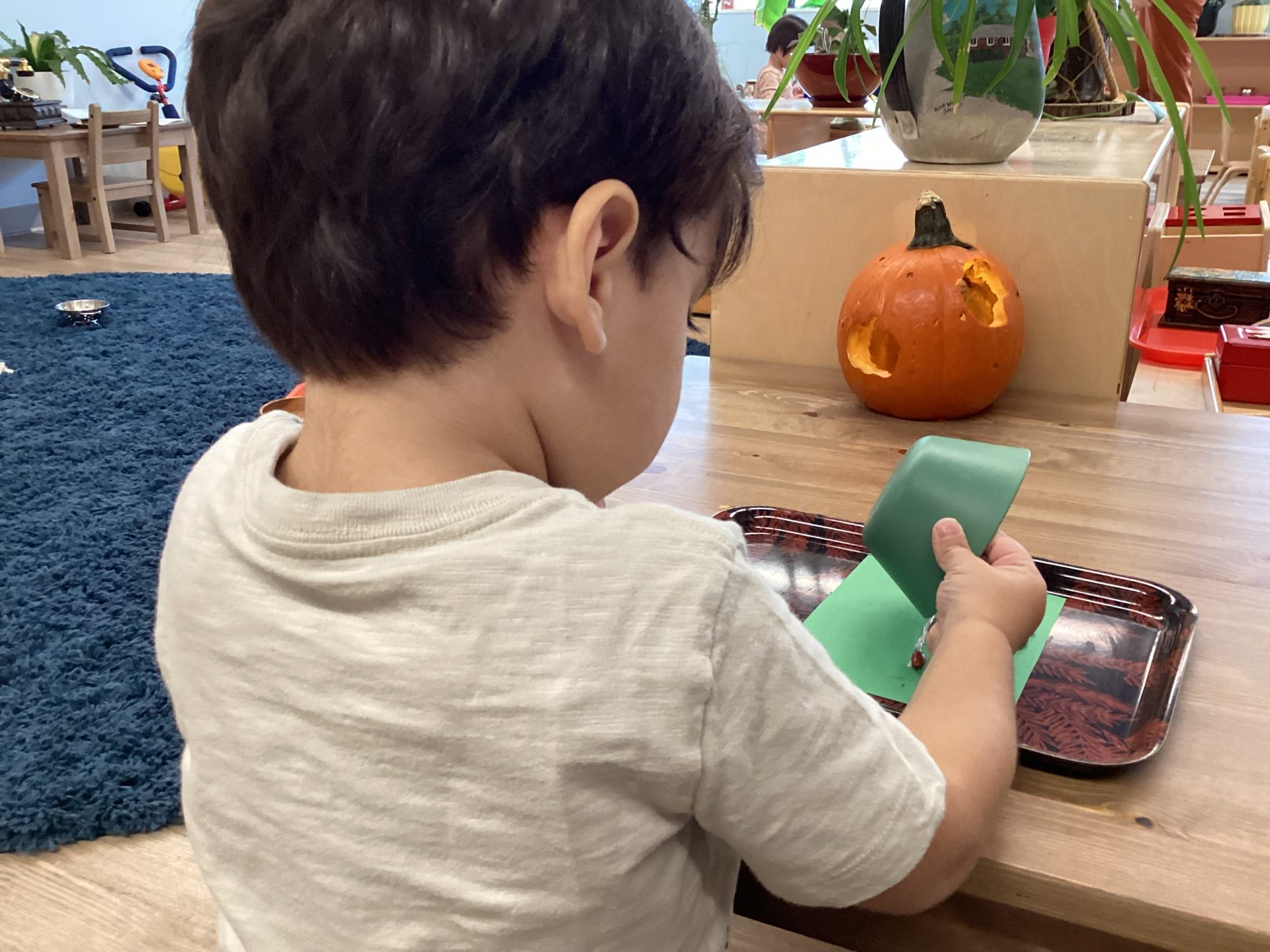


Story Time at Circle
At the Coffee last week, I was asked which books are read at Circle. Marissa, Sara, and I read similar books, but I listed our favorite picks for this time of year:
Ms. Michelle’s picks:
- Not A Box by Antoinette Portis
- No, David! by David Shannon
- I never read the words of this book because they are negative. Instead, I talk to the children about what David is doing and what might be a better way to do a task, like when David is standing on a chair reaching high to get a cookie. The children will now say, “Feet on the floor, David. Go ask a grown-up for help.” This is great because toddlers feel like they make mistakes, and they can relate. It is also a great time to go over rules and safety.
- Let It Shine by Ashley Bryan
Teacher Marissa’s picks:
- Baby Beluga (Raffi Songs to Read) by Raffi
- We’re Going On A Bear Hunt by Michael Rosen
- I’m A Little Teapot by Iza Trapani
Ms. Sara’s picks:
- The Bear Went Over the Mountain by Iza Trapani
- Pete the Cat: I Love My White Shoes by Eric Litwin
- Down By The Bay (Raffi Songs to Read) by Raffi
The children love songbooks, which is why we also prefer them. Two classroom favorites are Jennie Jenkins and Kitty Alone by John Feierabend.


Upcoming Events
- Friday, November 3: Professional Development Day, 11:45 am dismissal for all (no nap)
- Friday, November 10: Parent Teacher Conferences, school is closed for children
- Friday, November 17: Parent Teacher Conferences, school is closed for children
- Wednesday, November 22: Pajama Day and 11:45 Dismissal for all!
- Thursday & Friday, Novembers 23 & 24 : School Closed for all
- Tuesday, November 28: Parent Ed Workshop: Bridge Between School and Home (Time to be confirmed)
Previous Blogs
- Ms. Michelle: Setting Your Child Up for Success through Repetition and Routine Building (September 2023)
- Ms. Michelle: Welcome To The Monarch Community at Greene Towne Montessori School (August 2023)

Gather a group of Greene Towne families & friends or go on your own to SESAME PLACE!
Read More



